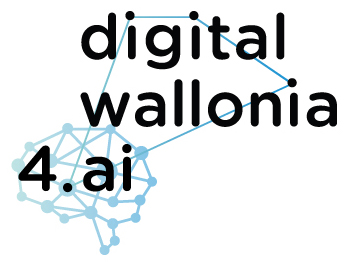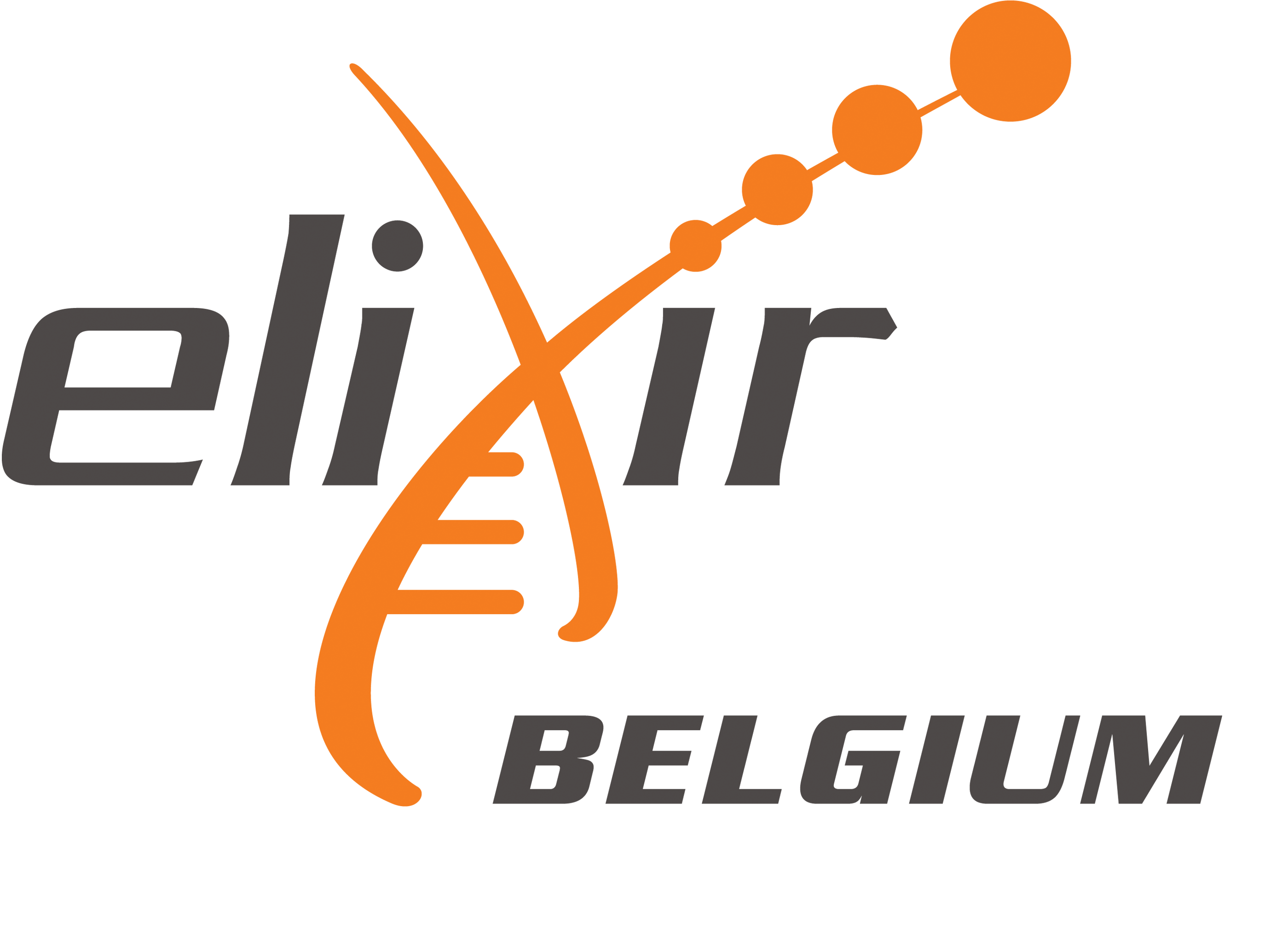This site uses cookies!
We use cookies for security, analytics and session persistence reasons. Please refer to our Cookie Policy for more information.
General Information
OLIDA was developed by the Interuniversity Institute of Bioinformatics in Brussels (IB)²
OLIDA completely overhauled DIDA, a novel database that provided for the first time detailed information on genes and associated genetic variants involved in digenic diseases, the simplest form of oligogenic inheritance, with the aim of increasing the data quality, content and accessibility. OLIDA was designed to allow storage of information on any type of oligogenic diseases in addition to the digenic diseases present in DIDA.
DIDA has been deprecated, but the table data has been kept for historical purposes on Zenodo. OLIDA provides up-to-date information, more thoroughly curated using a clearly defined protocol (see details about our curation pipeline in the documentation).
Data in DIDA has been curated by the following former curators:
- Dr Andrea Gazzo ORCID - Google Scholar
- Dorien Daneels ORCID
All the data in OLIDA was curated by dedicated biocurators:
- Dr. Sofia Papadimitriou - ORCID - Google Scholar
- Barbara Gravel - ORCID - Google Scholar
- Charlotte Nachtegael - ORCID - Google Scholar
- Inas Bosch - ORCID - Google Scholar
Special Thanks
If interested to help in the curation, let us know. Special thanks already to following external contributors:
- Dr Douglas Stewart, Consultant Paediatric Nephrologist at the Royal Hospital for Children, Glasgow
- Dr Anaïs Mottaz, Post-doctoral researcher at Hôpitaux Universitaires de Genève
Updates
v4, March 2024 
Update of OLIDA content with articles published up to January 2024.
Nine existing gene combinations (18, 176, 180, 452, 552, 559, 599, 708 and 747) had their scores upgraded and involved variant combinations which were reviewed for potential change of score.
Several variant combinations had part of their scores changed:
- OLI022: Gene knowledge and Gene Metascore upgraded from 0 to 2 and 1 to 2 respectively, in consequence Functional Metascore was upgraded from 0 to 2, no change in the Final Metascore
- OLI272: Gene knowledge and Gene Metascore upgraded from 0 to 2
- OLI276: Gene knowledge and Gene Metascore upgraded from 0 to 2
- OLI633: Gene knowledge and Gene Metascore upgraded from 0 to 2
- OLI659: Gene knowledge and Gene Metascore upgraded from 0 to 2, in consequence Functional Metascore was upgraded from 0 to 2, no change in the Final Metascore
- OLI764: Gene knowledge and Gene Metascore upgraded from 0 to 2
- OLI775: Gene knowledge and Gene Metascore upgraded from 0 to 2, in consequence Functional Metascore was upgraded from 0 to 2, no change in the Final Metascore
- OLI823: Gene knowledge and Gene Metascore upgraded from 0 to 2
- OLI826: Gene knowledge and Gene Metascore upgraded from 0 to 2, in consequence Functional Metascore was upgraded from 0 to 1, no change in the Final Metascore
- OLI945: Gene knowledge and Gene Metascore upgraded from 0 to 2, in consequence Functional Metascore was upgraded from 0 to 2, no change in the Final Metascore
- OLI951: Gene knowledge and Gene Metascore upgraded from 0 to 1, in consequence Functional Metascore was upgraded from 0 to 1, no change in the Final Metascore
- OLI1008: Gene knowledge and Gene Metascore upgraded from 0 to 1
- OLI1013: Gene knowledge and Gene Metascore upgraded from 0 to 1, in consequence Functional Metascore was upgraded from 0 to 1, no change in the Final Metascore
Were added to the database:
- 198 variant combinations
- 381 variants
- 123 genes
- 141 gene combinations
- 11 diseases
- 35 references
The format for the CNVs in the Oligogenic Variant Combinations table has been changed to include their gene name when available. In consequence, the format of the downloaded table has also changed.
The terms for the gene relationships were harmonized to avoid doublons, such as "Relevant pathways for phenotype" and "Involvement in relevant pathway(s) for phenotype".
v3.3, December 2023 
Update of variants ID 136, 137, 639, 947, 1661 and 2144, as they contained typos.
Many thanks to Dr Anaïs Mottaz, Post-doctoral researcher at Hôpitaux Universitaires de Genève, for finding the errors.
Update of the combination OLI1415 due to a missing variant, the missing variant was added under the ID 3399; gene combination with ID 992 was modified in consequence with their manual score and metascore downgraded to 0.
v3.2, October 2023
Update of combinations OLI1032, OLI1033, OLI1034, OLI1035, OLI1036, OLI1037 and OLI1038, to add the Meniere disease to the list of diseases linked to the variant combinations.
Special thanks to Dr Douglas Stewart, Consultant Paediatric Nephrologist at the Royal Hospital for Children, Glasgow, for finding the error.
v3.1, July 2023
Changes in diseases-related statistics plots to include gene combinations and add genes for CNVs when available.
v3, May 2023 
Update of OLIDA content with articles published up to February 2023.
Three existing gene combinations (189, 606 and 635) had their scores upgraded and involved variant combinations were reviewed for potential change of score.
Several variant combinations had part of their scores changed :
- OLI285: Gene Manual harmonized and Gene Metascore upgraded from 0 to 2, in consequence Functional Metascore was upgraded from 0 to 2, increasing the Final Metascore from 0 to 1
- OLI286: Gene Manual harmonized and Gene Metascore upgraded from 0 to 2, in consequence Functional Metascore was upgraded from 0 to 2, increasing the Final Metascore from 0 to 1
- OLI834 : Gene Manual score upgraded from 0 to 2
- OLI836 : Gene Manual, Gene Manual harmonized, Gene Metascore upgraded from 0 to 2, in consequence Functional Manual and Metascore were upgraded from 0 to 2, increasing the Final Manual and Metascore from 0 to 1
- OLI847: Gene Manual harmonized and Gene Metascore upgraded from 0 to 2, in consequence Functional Metascore was upgraded from 0 to 2, increasing the Final Metascore from 0 to 1
- OLI868: Gene Manual harmonized and Gene Metascore upgraded from 0 to 1, in consequence Functional Metascore was upgraded from 0 to 1, no change in Final Metascore
- OL1108: Gene Manual harmonized and Gene Metascore upgraded from 0 to 1, in consequence Functional Metascore was upgraded from 0 to 1, no change in Final Metascore
382 new variant combinations were added to the database.
The variant combination OLI1126 was deleted and merged with a previously existing combination, OLI084, after correction of the variants coordinates.
The API was also updated to include all the metadata found in OPTIONS until now.
v2, August 2022 
Update of OLIDA content with articles published up to January 2022.
v1, April 2022 
Original OLIDA publication.
Contact
If you have any questions about OLIDA that are not answered in the documentation, feel free to contact us at olida@ibsquare.be. We will try to get back at you as soon as possible.
OLIDA – publications and citations
OLIDA
When using data from OLIDA please cite:
-
Nachtegael C. and Gravel B., Dillen A., Smits G., Nowé A., Papadimitriou S., Lenaerts T.
Scaling up oligogenic diseases research with OLIDA: the Oligogenic Diseases Database.
Database, April 2022. DOI: https://doi.org/10.1093/database/baac023
Citation files: BibTex, RIS
Predictors trained using our data
The data from digenic diseases of DIDA was used in our research group and around the world to train machine learning predictors aiming to predict and understand the cause of digenic diseases.
They can be found on the about page of the website of DIDA at http://dida.ibsquare.be/about/.
VarCoPP 2.0
VarCoPP 2.0 is the update of the VarCoPP predictor, trained with the data from OLIDA with a decent confidence score, aiming to predicting potential pathogenic digenic variant combinations.
The model is integrated on the ORVAL platform.
Citing VarCoPP 2.0:
-
Versbraegen, N., Gravel, B., Nachtegael, C., Renaux A., Verkinderen E.,
Nowé A., Lenaerts T.,Papadimitriou S.
Faster and more accurate pathogenic combination predictions with VarCoPP2.0.
BMC Bioinformatics, May 2023. DOI: https://doi.org/10.1186/s12859-023-05291-3
Citation files: BibTex, RIS
ORVAL
ORVAL is a sister platform to OLIDA that incorporates the VarCoPP predictor, the digenic effect predictor and other analytical tools,
to explore oligogenic variant combinations and predicted pathogenic gene networks in an individual.
It is available at orval.ibsquare.be.
Citing ORVAL:
-
Renaux A., Papadimitriou S., Versbraegen N., Nachtegael C., Boutry S., Nowé A., Smits G., Lenaerts T.
ORVAL: A novel platform for the prediction and exploration of disease-causing oligogenic variant
combinations.
Nucleic Acids Research, May 2019. DOI: https://doi.org/10.1093/nar/gkz437
Citation files: BibTex, RIS
BOCK and ARBOCK
BOCK is a knowledge graph constructed to explore disease-causing genetic interactions,
integrating curated information on oligogenic diseases from clinical cases with relevant biomedical networks and ontologies. Using this graph,
they developed a novel predictive framework based on heterogenous paths connecting gene pairs.
This method trains an interpretable decision set model that not only accurately predicts pathogenic gene interactions, but also unveils the patterns associated with these diseases.
BOCK is available at https://zenodo.org/records/8124854.
Citing BOCK:
-
Renaux A., Terwagne C., Cochez M., Tiddi I., Nowé A., Lenaerts T.
A knowledge graph approach to predict and interpret disease-causing gene interactions.
BMC Bioinformatics, August 2023. DOI: https://doi.org/10.1186/s12859-023-05451-5
Citation files: BibTex, RIS
Data Privacy
We hereby declare that:
- We use Google Analytics to track general visitor traffic information. We do not take any responsibility for the data stored by this third party application.
- The personally identifiable data of the users collected through this website, with your consent, is only accessible for selected researchers of Vrije Universiteit Brussel (VUB) and Université Libre de Bruxelles (ULB), both Universities acting as Data Controllers, who manage the OLIDA web service. The data will not be shared with any person. Data will be kept during all time of registration with the website. Users can request a full purge of their personal data at any time by removing their account and selecting the purge option.
- ULB and VUB have data protection officers who are responsible for matters related
to privacy and data protection. To reach the DPOs of the universities you can send an email to:
ULB DPO: rgpd@ulb.ac.be (Université Libre de Bruxelles, Data protection officer, Avenue Franklin Roosevelt 50, CP 130, 1050 Brussels).
VUB DPO: dpo@vub.be (Vrije Universiteit Brussel, Data Protection Officer, Pleinlaan 2, 1050 Brussels).
Subject's right with regard to personal data:
On May 25th 2018, the "General Data Protection Regulation" takes effect. The GDPR is a European regulation which grants individuals rights with respect to the way their personal data is handled and protected. Individuals may, for example - depending on the legal basis for the processing of their personal data and dependent on the fulfillment of certain conditions - exercise a right to:
- inquire as to what personal data is processed and, when the data is provided to the VUB by a third party
- inquire into the source of this information
- request the correction of data insofar as it is incorrect
- object to the processing of his or her data
- know of the existence of possible automated decision making processes, and, when these are used to create profiles, inquire into the logic underlying these processes, the purposes they serve, and their consequences
- ‘be forgotten’ by an institution that has processed their personal data
Cookie Policy
To enhance user experience and security this website makes uses of cookies that will be stored in the browser cookie storage. We hereby declare that of the data stored in these cookies will NEVER be used for advertising or sharing personal information with third parties. The main cookies that we use are the following:
- csrftoken: This cookie stores a token that is used to prevent Cross-site request forgery attacks. We refer to the Django web framework documentation for a detailed explanation of how this works. This cookie changes regularly for protection purposes and lasts only the duration of your visit.
- sessionid: This cookie is assigned when one visits the site for the first time. It allows us to securely store user preferences and enhance performance when a user visits the site again from the same web browser on the same computer. This will also prevent malicious agents from impersonating a known user. The session is also used to securely identify logged in users among other things. This cookie is indefinite, unless you delete from your browser yourself.
- _ga This cookie is only enabled if you accept analytics cookies. This cookie is used by Google analytics to keep track of users across browsing sessions. For more information on this cookie, see the Google analytics documentation.
Supported By:
This work was supported by
The European Regional Development Fund (ERDF) and the Brussels-Capital Region-Innoviris within the framework of the Operational Programme 2014–2020 through the ERDF-2020 project ICITY-RDI.BRU (27.002.53.01.4524),
Fonds de la Recherche Scientifique (F.R.S-F.N.R.S) through a FRIA grant (40008622), a postdoctoral fellowship (40005602) and a research project (35276964),
The Service Public de Wallonie Recherche by DIGITALWALLONIA4.AI through the ARIAC project (2010235),
Innoviris Joint R&D project Genome4Brussels project (2020 RDIR 55b),
The Research Foundation – Flanders (F.W.O) infrastructure project associated with ELIXIR Belgium (I0022819N).
License:

This work is licensed under a Creative Commons Attribution-NonCommercial 4.0 International License.
Copyright © 2025, Interuniversity Institute of Bioinformatics in Brussels













